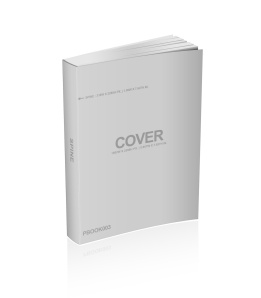I’m a little late with the blog this week, as I’ve been focused on subbing out stories. It’s kind of a grueling process, since I have to get to know the various markets to find the right fit, which means reading their stories first. I lost some time reading a magazine only to find that it’s closed to submissions. I’ve adjusted my method accordingly. Now, the waiting begins.
I do have a great topic to discuss with you all, but I’m putting that off until next week so I can tell you about my big personal challenge.
I’m going to read all of the winning books for the Pulitzer Prize in Fiction. Yeah.
It looks like a cheap project at the beginning, since the first five are already in the public domain. I hope to find used copies of the rest as I go, and a few of them are already on my shelves, some already read, some on my “to read” list already.
I hope that this will expand my horizons a bit, since I don’t tend to read much literature older than me. Most of my favorite authors are still alive and writing, so it will be interesting to see what was considered awardworthy in the past. (Yes, I just invented that word. Awardworthy ®.)
The first novel to receive the award was His Family by Ernest Poole.
From Wikipedia: His Family tells the story of a middle-class family in New York City in the 1910s. The family’s patriarch, widower Roger Gale, struggles to deal with the way his daughters and grandchildren respond to the changing society. Each of his daughters responds in a distinctively different way to the circumstances of their lives, forcing Roger into attempting to calm the increasingly challenging family disputes that erupt.
This kind of story sounds right up my alley. I love family conflict—when it’s not in my own family—and write about it quite a bit.
An interesting note about this book: It was published in 1917, won the award in 1918, and was out of print by the mid-20s. It wasn’t reprinted until 1970, then was taken out of print again by the late 70s, reappearing again in 2000. You can get it on Amazon, or free through Gutenberg.
That is, if you’re interested in joining me in this challenge. I know that many of you have different tastes in reading, so would you consider a similar personal challenge? Hugo Awards, perhaps? RITA Award? Some other personally defined reading challenge? I’d love to hear what you’ve done to push yourself to read more.




To broaden my horizons, I would probably be better going for the Pulitzer, as I haven’t read many of the American ‘greats’. My English Lit. class concentrated mostly on British writers, although we did cover a few Americans.
I would be more tempted to go for the Nebula, since that’s my genre of choice, but the Pulitzer list would probably do me more good regarding overall writing.
Interesting. Off the top of your head, what’s the difference between a Nebula and a Hugo, for those of us who don’t want to slog through the Wikipedia articles?
http://en.wikipedia.org/wiki/Hugo_Award
http://en.wikipedia.org/wiki/Nebula_Award
I don’t know what the difference is, without reading the Wiki articles. I’m just more familiar with hearing about the Nebula, since it’s run by the SFWA. I think they’re both as prestigious as each other. The Nebula is also works published in the US, whereas I believe the Hugo can be won by works published anywhere, as long as it’s in English.
I’ve set myself the goal of reading at least one book by every author who’s won the Nobel Lit Prize. I love that the winners are from all over the world (especially in the last quarter century) so I get a taste of so many different cultures. So far I’m at 23 out of 100 or so.
That’s great. I considered going that route, but I wanted to focus on American books first. I might give that a shot later.
Sounds like you’re making good progress.
It’s been over about 8 years, so no, I’m not really making that great of progress. 🙂
Sounds like a fantastic idea, George. Keen to hear about your favourites as you go – my goal is to read a book. Any book. I haven’t finished one in months (due to writing) and I’m starting to get frustrated 🙂
I’ll keep everybody posted!
Sometimes when I find it difficult to get back into reading, I grab something I’ve already read that I know I’ll enjoy. It eases me back in.
Good thinking! I ought to visit my bookshelves and not leave until I have a favourite in hand.
This is just the sort of project summer holidays were made for!
If only I had a summer holiday and read faster. 🙂